Shadow and Bone ticks off every YA trope. An orphan who happens to be the chosen one of myth. Check. A young woman who has no idea how powerful she truly is. Check. A burgeoning love triangle between our heroine, her childhood compadre, and her darker, more mature, and enigmatic mentor. Double check. A dystopian world in which countries and clans are deeply untrusting of one another. Also check.
There is nothing here that you haven’t already seen before. Not once or twice, but dozens of times, on Netflix alone. But before you roll your eyes thinking this is yet another algorithm driven adaptation, know that Shadow and Bone does things just differently enough to keep it interesting.
Based on Leigh Bardugo’s incredibly popular series of novels, these eight episodes tell the story of Alina Starkov (Jessie Mei Li), an orphan mapmaker, who discovers that she is, in fact, the Sun Summoner of prophecy, the one person who can unite her war-torn world by undoing The Fold, a large stretch of impenetrable darkness that engulfs their land. Upon discovering her secret superpower, Alina suddenly finds herself in great demand – by the mysterious General Kirigan (Ben Barnes), who wants to train her to harness her powers in order to save the world, by a pack of mercenaries called the Crows, who are working for Kirigan’s enemies, and by her best friend Mal (Archie Renaux), who would do anything to protect her.
The Grishaverse Unfolds
There is a familiarity to that series synopsis. Change some of those names and it could well apply to the vast majority of YA fare. Shadow and Bone, however, stands out by virtue of its sense of self-awareness. Showrunner Eric Heisserer – and author Leigh Bardugo before him – are both conscious enough to not dwell on the same old same old. And so they fast forward through the vast majority of those tropes, skipping past those that are old hat, while leaning on all the ones they know we not-so-secretly enjoy.
This series moves. Much like the novels, Shadow and Bone wastes little time getting into the meat and potatoes of Alina’s journey. There is no waiting until the end of the season for her to discover her powers. There is no inner conflict or dilly-dallying with regards to her accepting who she is. We aren’t made to suffer through hours and hours of chosen one angst.
Star Wars worked because Luke was always ready and willing to accept that call to adventure. His was a fun hero’s journey because – laser swords aside – it was driven by a sense of purpose rather than forced relevance. Luke acted with agency and that made him a compelling character. Now, I’m not saying that this is Star Wars, but it does borrow from that narrative rulebook. Unlike a lot of her YA counterparts, Alina Starkov has a sense of agency right from the get go. She grows in a variety of different ways across these eight episodes but does so on her own terms. (The series also cleverly does away with the novel’s less-than-attractive-protagonist-who-becomes-beautiful-once-she-embraces-her-powers trope!)
An Asymmetrical Adaptation
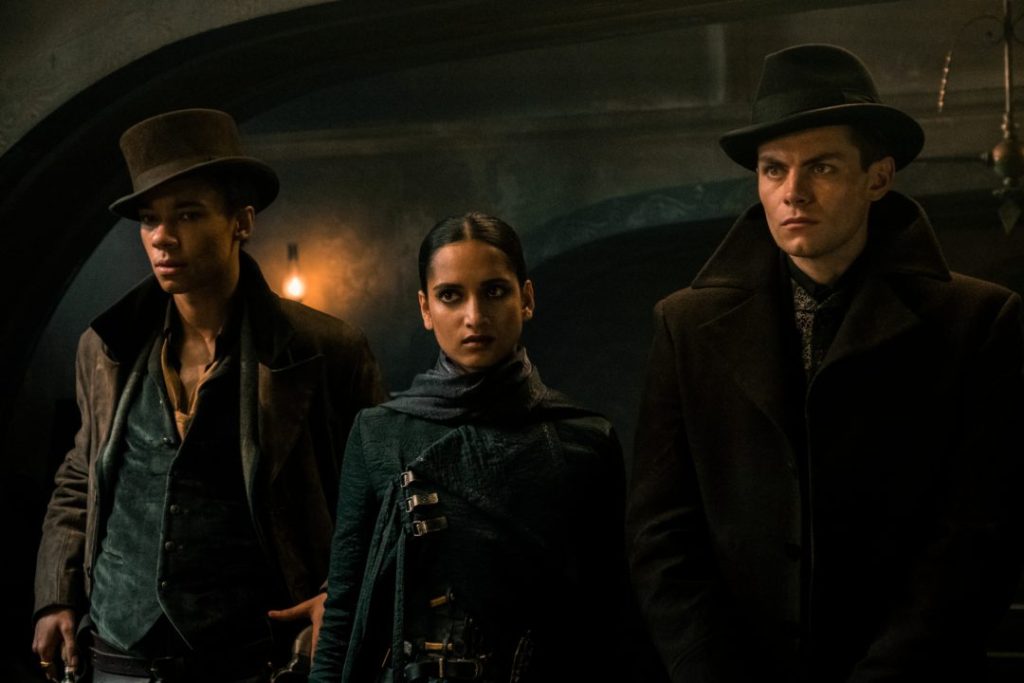
The smartest thing about this adaptation, however, is in how it handles the source material. By taking Leigh Bardugo’s Grishaverse as a whole, by bringing in characters from both the Shadow and Bone trilogy and her Six of Crows duology, the series moves beyond the old “one book as a season of television” methodology. While this season does indeed draw on the first Shadow and Bone book for the majority of its arc, it also serves as something of a prequel to the Six of Crows, creating a backstory for those characters, and weaving them into Alina’s adventure.
It also helps that the roguish Crows – Kaz (Freddy Carter), Inej (Amita Suman), and Jesper (Kit Young) – are the most fun characters in the series.
All of this makes for a far more layered series of television. It grows the story beyond just the relationship between Alina, and Mal, and General Kirigan. What’s more, it gives fans of the books something new as well. This is an adaptation that isn’t just based on, but inspired by, the world that Leigh Bardugo has created. This is an adaptation that is confident enough to build on those ideas and maybe even run away with some of them.
Just Who Is Shadow and Bone For?
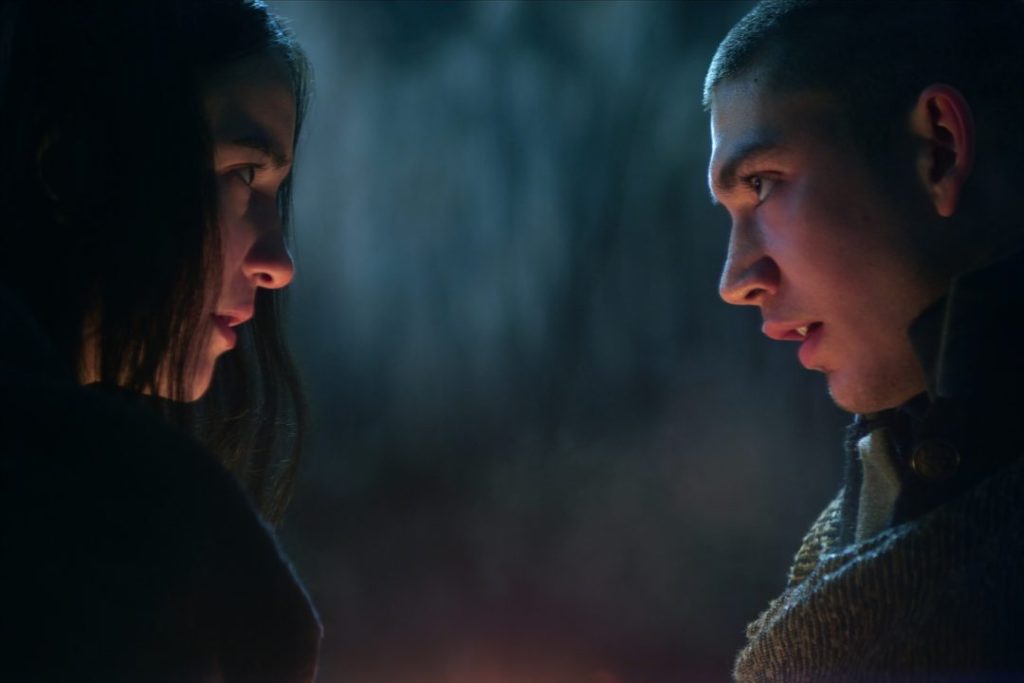
That said, I’m not sure if Shadow and Bone is for everyone. While I was thrilled that the writers of the series didn’t dumb anything down, or drown us with exposition, I did wonder how accessible it was to anyone who hasn’t read the novels. The show does get bogged down from time-to-time with a lot of world building detail that is steeped in made up names and fantasy jargon, constantly reminding you that it is a genre piece. Which isn’t necessarily a bad thing. But it can have a limiting appeal.
This isn’t Game of Thrones. That show did well to double down on sex, politics, and the human condition in order to move past its genre trappings and appeal to a wider audience.
Shadow and Bone, on the other hand, seems stuck in this odd narrative space that is perfectly comfortable with darkness and violence and yet remains curiously chaste. There is a prudishness here when it comes to sex. Which is odd considering that the target demographic for this series appears to have been aged up along with the show’s protagonists.
Fan Service
Shadow and Bone is a stunningly well put together series, with a great cast, and phenomenal production values, that stays true to the source material without being slavish to it. If you are a fan of Leigh Bardugo’s Grishaverse, then this is precisely the kind adaptation you’ve been waiting for. It is her world brought to life.
If you haven’t read the novels, however, and if you aren’t a fan of YA fantasy, then this isn’t the series that’s going to make you one.
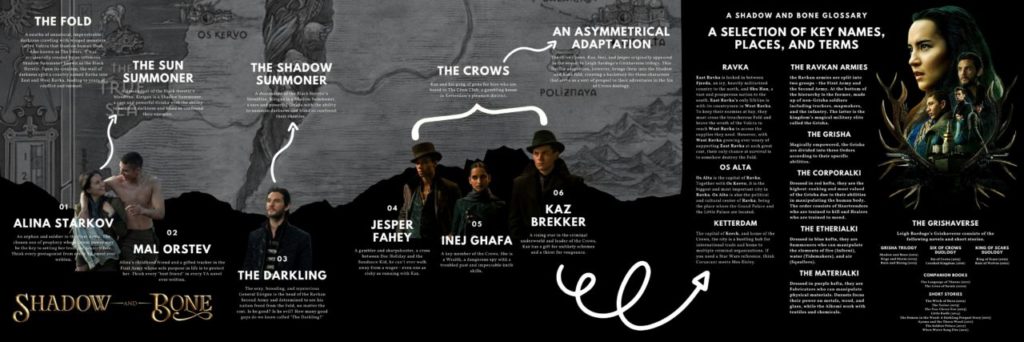

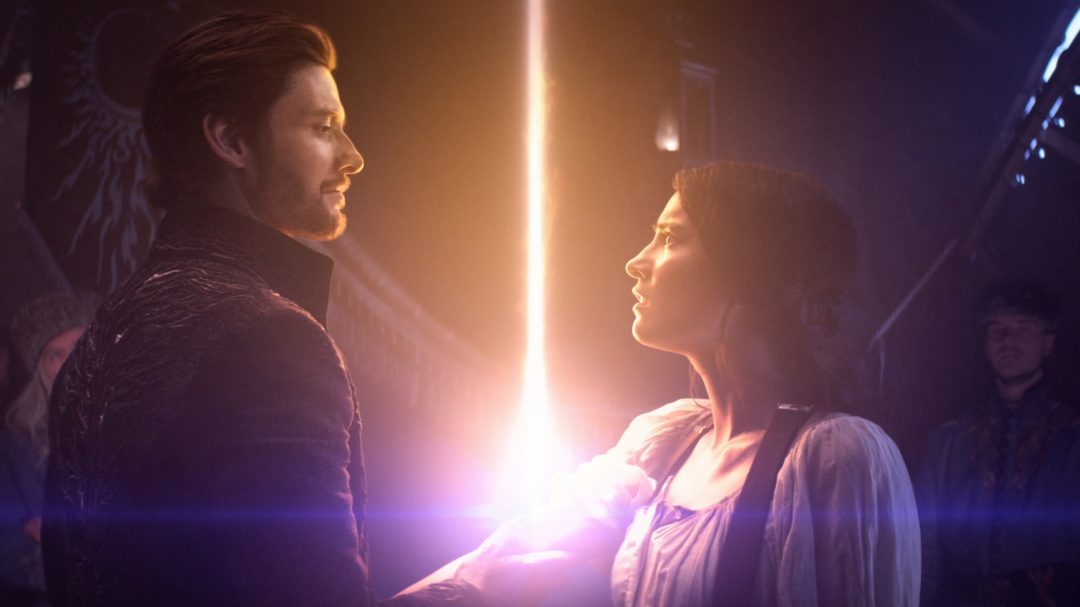
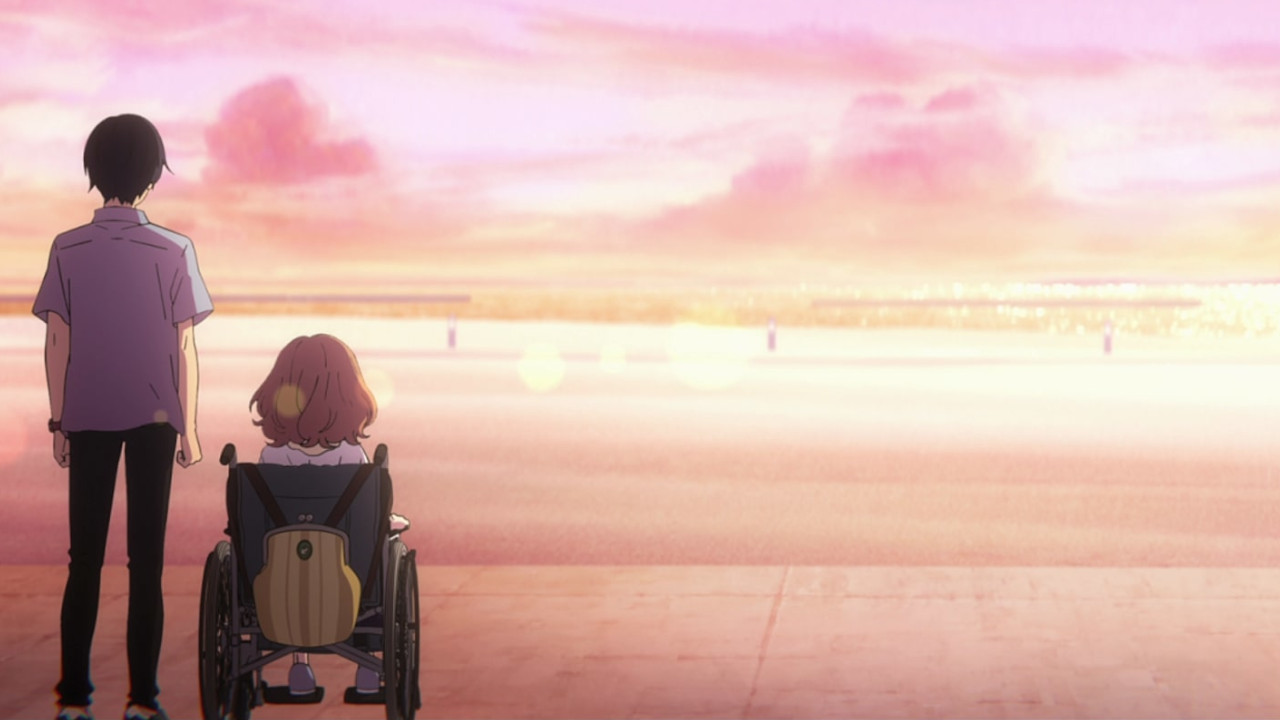
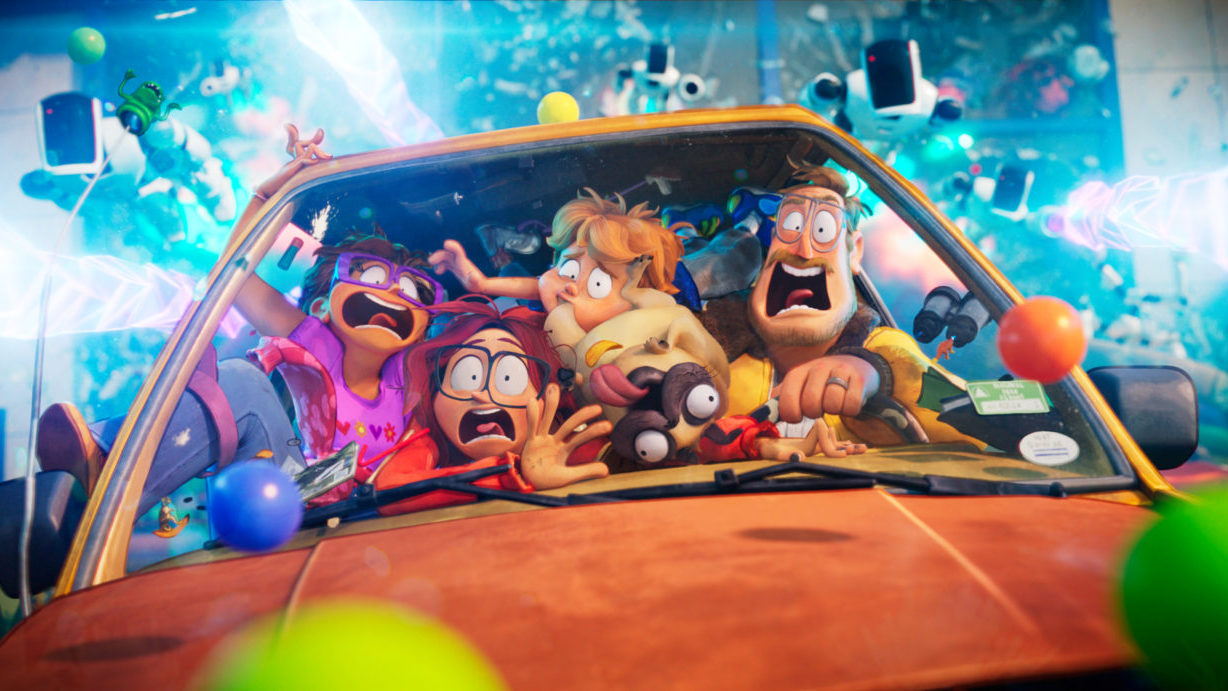
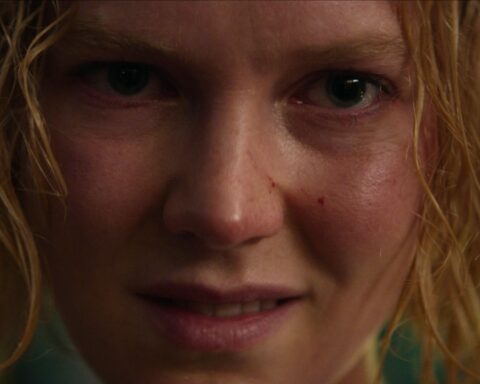

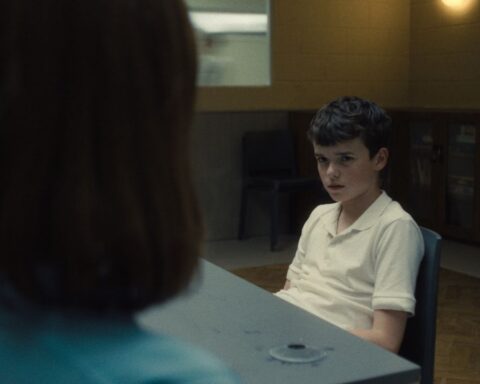
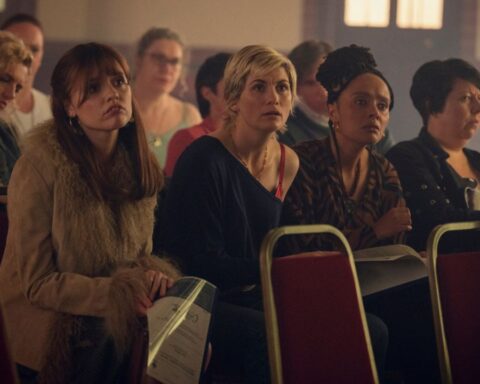
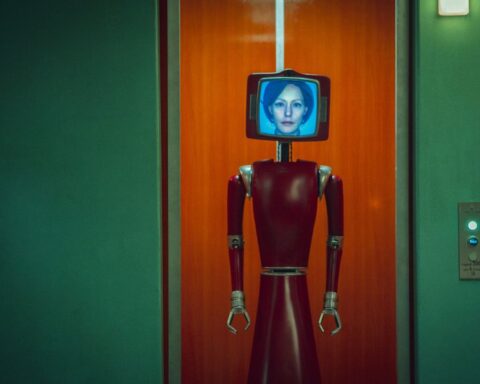
Follow Us